|
|
|
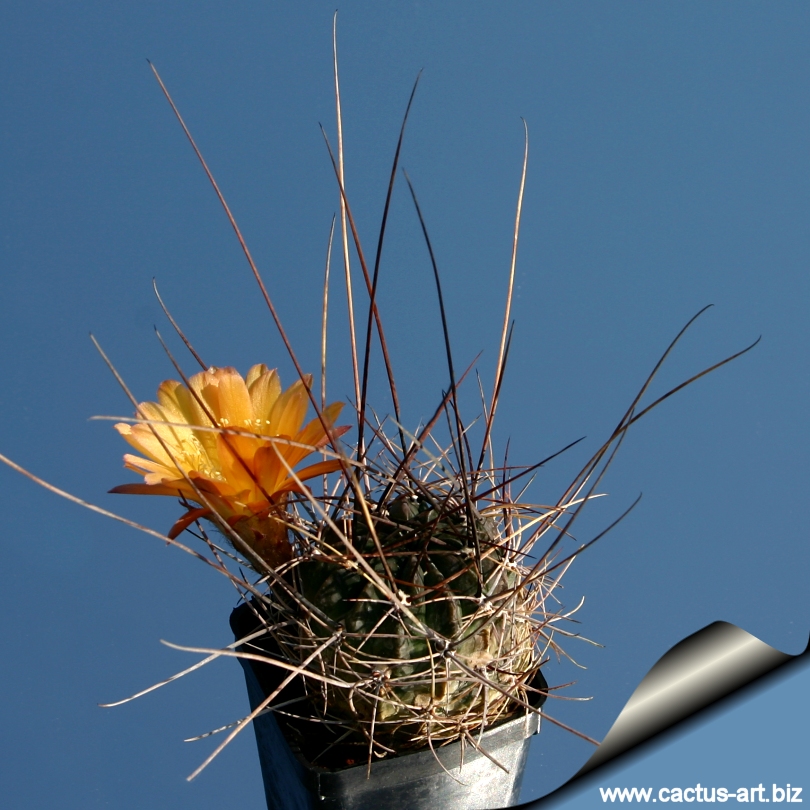
Lobivia pentlandii
var. hardeniana R298 Potosi, Potosi, Bolivia
This plant is 9 years old.
At this age the plant begins to
produce the typical long spines (up to 20 cm long
!!!) but younger specimens have short spines.
It is a great event when the
plants starts developing these huge spines!!!
|
|
Description: A pretty
little species, with a low, thick, flat to cylindrical stem.
The dark
green body slowly ramifies from the base to form clusters,
whose size
depends on the clone. Felted areoles line the edges of 25 to 30 ribs.
Spines: 7 or more, brownish, radial spines that grow
up to 5 cm. Old
plants begin to produce very long spines (up to 25 cm in some clones).
Flowers: Slender, pink to reddish-brown, orange or yellow with usually
a clearer centre, approx. 6.0 cm. long, 5.0
cm. in diameter. Blooms are
produced in spring, and remain open for about three days.
Root: tap root. |
|
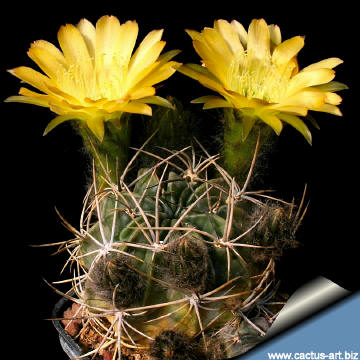
A 9 years old specimen
with still juvenile spines!
|
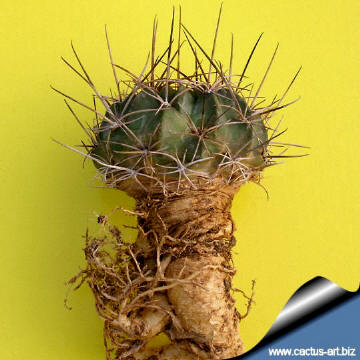
Root system. |
|
Cultivation: It is a summer growing
species that offers no cultivation
difficulties. Water regularly in summer (but do not
over-water). It
needs a large pot to accommodate a large
root system. Use a very draining and porous substrate.
Since it's natural habitat is in volcanic soil,
it has adapted to more acidic conditions.
Keep rather dry in winter.
It is quite frost resistant if kept dry (hardy to -5° C).
Outside it likes full sun or afternoon shade, inside
it needs bright light, and some
direct sun.
Propagation: Propagate by seed
or shoots.
|
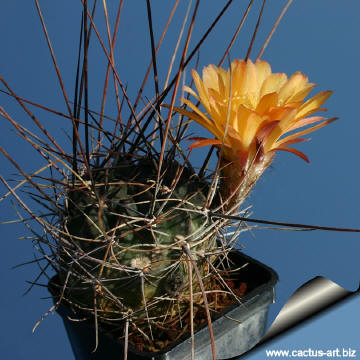 |
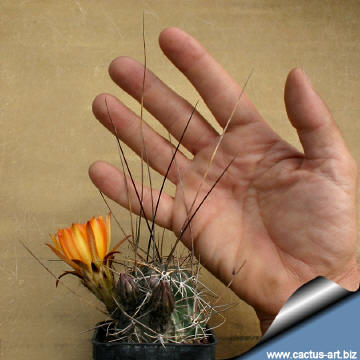 |
|
Photo of conspecific taxa, varieties,
forms and cultivars of Lobivia (Echinopsis) pentlandii.
|
|


Advertising
|
|
|
|
|
Family:
Cactaceae
(Cactus Family) |
Scientific name: Lobivia pentlandii
(W. J. Hooker) Britton & Rose 1922
Origin: Native to Northern
Bolivia and the Andean plateaus and slopes of Southern Peru.
Conservation status: Listed in
CITES appendix 2.
|
|
Note: L. pentlandii group is a complex
that comprises many different varieties, forms, and ± similar related
species. It was found by Pentland
and described in 1844 by W. Hooker as Echinocactus pentlandii. Salm Dyck
overcombined it into the genus Echinopsis. When Britton and Rose 1922
had established the genus Lobivia. L. pentIandii was chosen as type
species.
Synonyms:
- Echinopsis pentlandii (W. J.
Hooker) Salm-Dyck ex A. Dietrich 1846
|
Heterotypic synonyms:
- Echinopsis scheeri Salm-Dyck 1850
- Lobivia scheeri (Salm-Dyck)
Rausch 1992
- Lobivia boliviensis Britton &
Rose 1922
- Lobivia higginsiana Backeberg
1933
- Lobivia wegheiana Backeberg 1933
- Echinopsis hardeniana Boedeker
1935
- Lobivia hardeniana (Boedeker)
Boedeker ex Backeberg& F. M. Knuth 1935
- Lobivia pentlandii subsp. hardeniana
(Boedeker ex Backeberg& F. M. Knuth) G. Navarro 1996
- Lobivia argentea Backeberg 1935
- Lobivia leucorhodon Backeberg
1935
- Lobivia leucoviolacea Backeberg
1935
- Lobivia raphidacantha Backeberg
1935
- Lobivia varians Backeberg 1935
- Lobivia schneideriana Backeberg
1937
- Lobivia acculeata Buining 1941
- Lobivia brunneo-rosea Backeberg
1957
- Lobivia lauramarca Rauh &
Backeberg 1957
- Lobivia johnsonia Backeberg 1959
- Lobivia titicacensis Backeberg
1959
- Lobivia multicostata Backeberg
1963 (n.val.publ.)
- Lobivia larae Cárdenas 1964
- Lobivia pentlandii ssp. larae (Cárdenas)
G. Navarro 1996
- Lobivia omasuyana Cárdenas 1966
Note: L. pentlandii
group is a
complex
that comprises many different
varieties, forms, and ± similar related species. It was found by Pentland
and described in 1844 by W. Hooker as Echinocactus pentlandii.
Salm Dyck overcombined it into the genus Echinopsis. When
Britton and Rose 1922 had established the genus Lobivia.
L. pentIandii was chosen as type species.
|
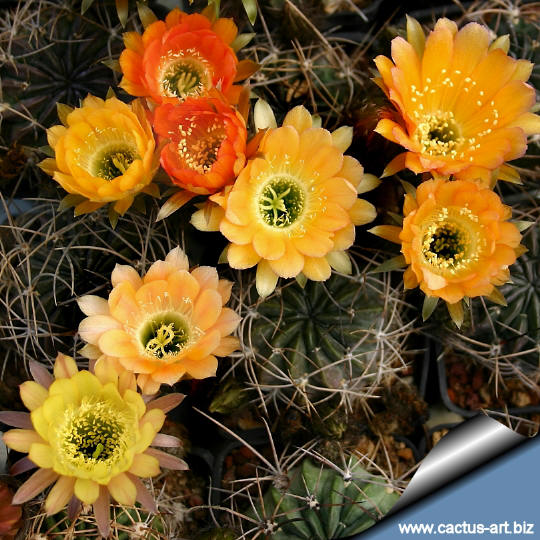
Flower colours range from pale yellow to rich
orange red |
|
|
|
|
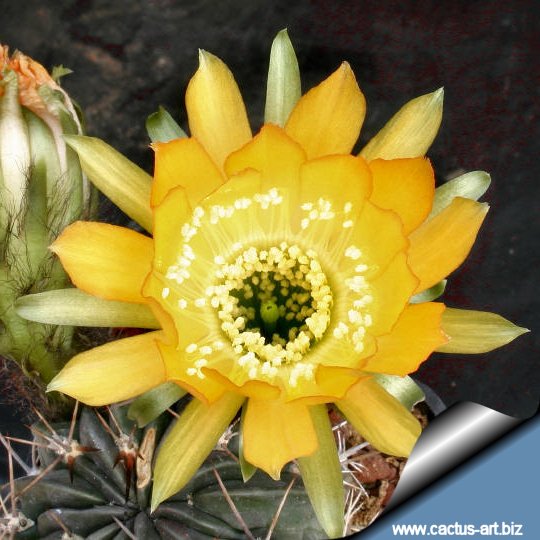
yellow with orange borders
|
|